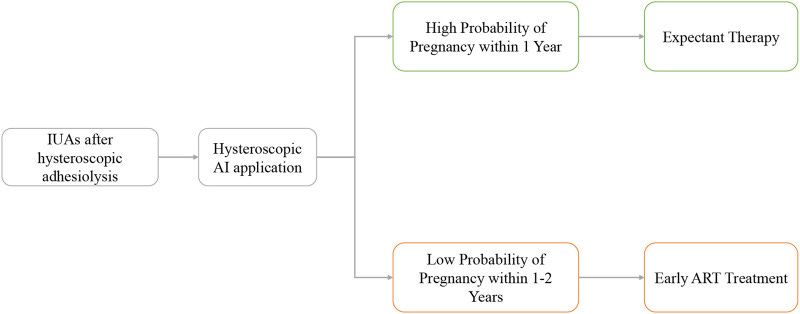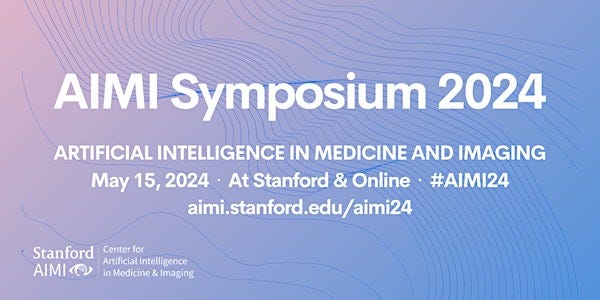🚀 This Week in Med AI: Explore Innovations from Smart Telemonitors to Enhanced Fertility Predictions! 👩👦
Updates on Artificial Intelligence & Emerging Technologies in Medicine 🤖🩺
“Some people call this artificial intelligence, but the reality is this technology will enhance us. So, instead of artificial intelligence, I think we’ll augment our intelligence.” - Ginni Rometty (CEO & President, IBM)
Dear Med AI Enthusiast,
Welcome to The ‘Med AI’ Capsule weekly newsletter, your inside look at how artificial intelligence and emerging technologies are transforming medicine.⚕
Whether you're a medical professional 👩⚕️, a technology enthusiast 💻, or simply someone with a curious mind 🧠, The 'Med AI' Capsule is designed for you.
It helps you stay informed 📰 about the latest groundbreaking updates and offers insights into the rapidly evolving world 🌍 of artificial intelligence and emerging technologies in medicine.
Let the adventure begin! I'm thrilled to have you along for the ride. 🚀
In today’s capsule:
3 News Updates
3 Research Updates
2 Industry Innovators
2 Upcoming Events
1 Knowledge Resource
1 Interesting Fact
Reading Time: 5-7 minutes
News Updates 📰
1. 🩺 Innovative AI System Monitors Heart Failure Risks via Foot Volume Analysis
A startup based in Cambridge, Heartfelt Technologies, has developed a revolutionary AI telemonitor that utilizes foot volume measurements to detect signs of heart failure in discharged patients.
This innovative system employs an infrared time-of-flight 3D camera to scan patients' feet for peripheral edema, an early indicator of heart failure, potentially reducing hospital readmissions.
How It Works: Installed in a patient's home, the device effortlessly monitors foot volume as the patient walks by, detecting significant changes and alerting caregivers. This enables early intervention, such as timely medication adjustments, potentially averting up to 75 percent of readmissions.
Why Important: Traditional monitoring methods require patients to regularly weigh themselves, which many find difficult to adhere to, leading to preventable readmissions. By automatically monitoring foot volume and transmitting data for analysis, this telemonitor provides a more consistent and convenient monitoring solution.
Future Applications: Beyond monitoring heart failure, the technology developed by Heartfelt Technologies has the potential to be adapted for other medical uses, such as managing high-risk pregnancies, further expanding its impact on healthcare.
Caution: Despite the promising initial results, the telemonitor still needs to undergo further trials to ensure its accuracy and reliability. Additionally, the technical complexities and privacy concerns related to AI and data handling must be rigorously addressed.
2. 🤖 AI Reveals Protective Gut Metabolites Against Alzheimer’s
Cleveland Clinic researchers have utilized AI to investigate gut microbiome's influence on Alzheimer's, identifying key metabolite-receptor pairs like agmatine and CA3R receptor, suggesting potential therapeutic avenues for Alzheimer's and other conditions such as heart disease, infertility, cancer, autoimmune disorders, and allergies.
While the findings offer exciting prospects, further research and clinical validation are essential to confirm the therapeutic potential and safety of these interactions.
3. 🏥 HoloLens Shows Potential for Enhancing Knee Replacements
Peerless Hospital doctors are utilizing the AI-driven HoloLens headset, offering a comprehensive augmented reality view of the patient's entire leg during knee replacements for enhanced precision and personalization over traditional, computer-assisted, and robotic techniques; the relatively cost-effective system generates holographic limb images from CT scans, facilitating tailored alignments and implant choices.
While promising, further validation is needed before the technology’s widespread adoption.
Research Updates 🔬
1. 🔬 AI Models Predict Fertility Outcomes After Hysteroscopic Adhesiolysis Using Hysteroscopic Images

Researchers have developed artificial intelligence (AI) models that can accurately predict fertility outcomes and guide personalized treatment decisions after hysteroscopic adhesiolysis for intrauterine adhesions (IUAs) using hysteroscopic images.
The study involved 555 patients with IUAs who underwent hysteroscopic adhesiolysis, with 4,922 postoperative hysteroscopic images used for model training and validation.
Key Findings:
High Predictive Accuracy: The InceptionV3+DeepSurv, InceptionResNetV2+DeepSurv, and ResNet50+DeepSurv models achieved area under the curve (AUC) values of 0.94, 0.95, and 0.93, respectively, for predicting natural conception within one year, outperforming traditional clinical scoring systems.
Robust Validation: On the external validation set, these models demonstrated consistent and reliable performance, with AUC values ranging from 0.93 to 0.95.
Fertility Prognosis Stratification: The models stratified patients based on their likelihood of natural conception within one year, identifying those who would benefit significantly from assisted reproductive technology (ART) interventions (hazard ratio = 3.13, 95% CI: 1.22–8.02).
Clinical Implications:
Personalized Treatment Planning: The AI models can assist clinicians in identifying patients at risk of infertility after hysteroscopic adhesiolysis, enabling tailored treatment plans and timely interventions.
Resource Optimization: Early identification of patients who may benefit from ART can optimize the allocation of medical resources and reduce treatment costs.
User-Friendly Application: A code-free AI application was developed, allowing clinicians without coding experience to visualize risk factors, predict conception probabilities, and guide individualized management strategies.
Limitations and Future Directions:
Sample Size: While promising, the study's sample size may limit generalizability, and larger prospective studies are needed to further validate the models.
Multimodal Learning: Incorporating additional clinical and imaging data through multimodal learning could potentially enhance the models' predictive power.
This innovative AI-driven approach has the potential to revolutionize the management of IUAs, enabling personalized and effective treatment strategies based on objective data analysis.
2. 🤖 AI Mental Health App Shows Promise for Healthcare Workers During Pandemic
A national healthcare cluster in Singapore piloted the AI mental health app Wysa among staff during COVID-19, showing high engagement, with top-used interventions being for sleep and anxiety.
While limited by sample bias, the findings suggest the feasibility of implementing such digital tools as standard practice, especially for mild-moderate cases, though those with severe symptoms may need guided human support.
3. 🩸 Machine Learning Algorithms Accurately Predict Anemia in Ethiopian Youth Girls
Using data from the 2016 Ethiopian Demographic and Health Survey, a study employed machine learning to predict anemia status among 5,642 young women aged 15-24, identifying key predictors like region, poverty, poor sanitation, and education, demonstrating the potential for targeted interventions in low-resource settings.
However, the study was limited to youth girls, necessitating further research across other demographics.
Industry Innovators 👨🏭
Acorai - is developing a non-invasive method to estimate intracardiac pressures using a combination of seismic, Acoustic, Visual, and Electrocardiographic sensors. The technology is built upon Acorai’s proprietary datasets and partnerships with leading hospitals. They have investments and support from renowned institutions like Cedars-Sinai and Mayo Clinic Platform Accelerate.
Sweetch-Health - provides hyper-personalized recommendations and engages individuals throughout their chronic condition journey, with a focus on tone, timing, and real-world context in its interactions.
Upcoming Events 🧑💻
Knowledge Resource 📚
Blog Article: Top 10 AI Implementation Strategies (AI Magazine)
The article discusses the top 10 strategies for businesses to effectively implement AI technology.
Stay informed about AI trends and regulations, pilot test projects, monitor and evaluate AI systems regularly. Collaborate with human workers, upskill and reskill employees, and adopt ethical AI principles. Secure executive support, prioritize data quality and governance, and invest in data infrastructure.
Ultimately, defining clear objectives is deemed essential for a successful AI strategy, enabling businesses to drive innovation, enhance efficiency, and improve customer experiences in a rapidly-changing industry landscape.
Let’s wrap it up with an Interesting Fact! 🤓
The global artificial intelligence (AI) market was valued at approximately $87 billion in 2022 and is expected to reach $407 billion by the end of 2027, growing at a CAGR of around 36.2% between 2022 to 2027. (Source)
Imagine you are organizing a local festival in a small town. Initially, in 2022, the festival attracts 87,000 visitors, equivalent to the $87 billion valuation of the global AI market. Excited by the novelty and quality of the event, word spreads quickly, and the festival begins to grow exponentially:
By the end of 2023: Visitor numbers swell to approximately 118,500, as more attractions and events are added.
By the end of 2024: The festival grows further, attracting about 161,500 attendees, making it a regional highlight.
By the end of 2025: It becomes a national attraction with around 220,000 visitors, featuring more diverse activities and renowned performers.
By the end of 2026: The festival draws approximately 300,000 people, becoming one of the must-visit events in the country.
By the end of 2027: The festival peaks at nearly 407,000 attendees, now famous internationally for its scale and variety.
This analogy illustrates the rapid and substantial growth of the AI market. Just like a festival that grows from a local gathering to an international event in five years, the AI market is rapidly expanding, transforming industries, and becoming an integral part of global economic and technological landscapes.
Your feedback is crucial to me, as it helps me understand your interests and improve my offerings. I would appreciate it if you could take a few minutes to share your thoughts about what you've enjoyed and what you think I could do better - https://forms.gle/xpbpgVEyARWx6ZxN8
Stay tuned for our upcoming editions as we explore the latest breakthroughs and dive deep into the transformative power of artificial intelligence and emerging technologies, shaping a healthier future. 🚀
Warm regards,










